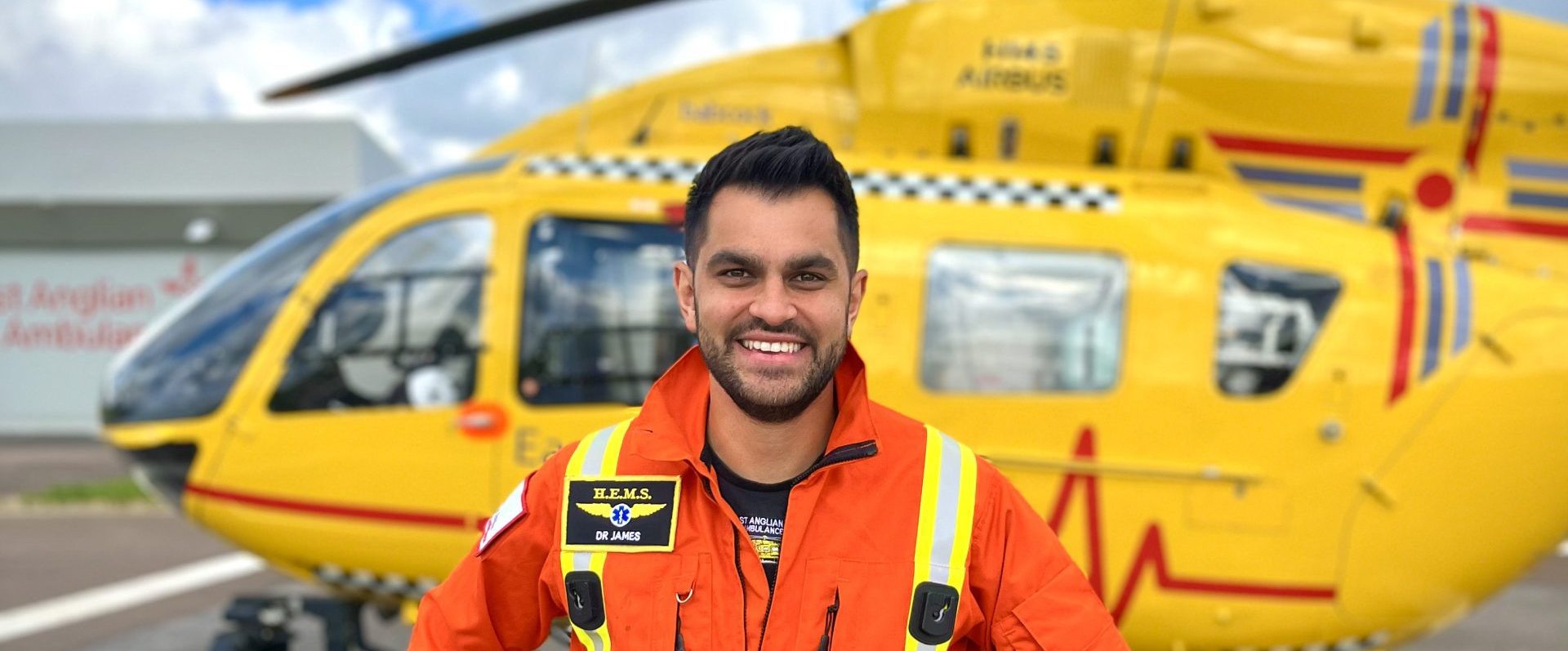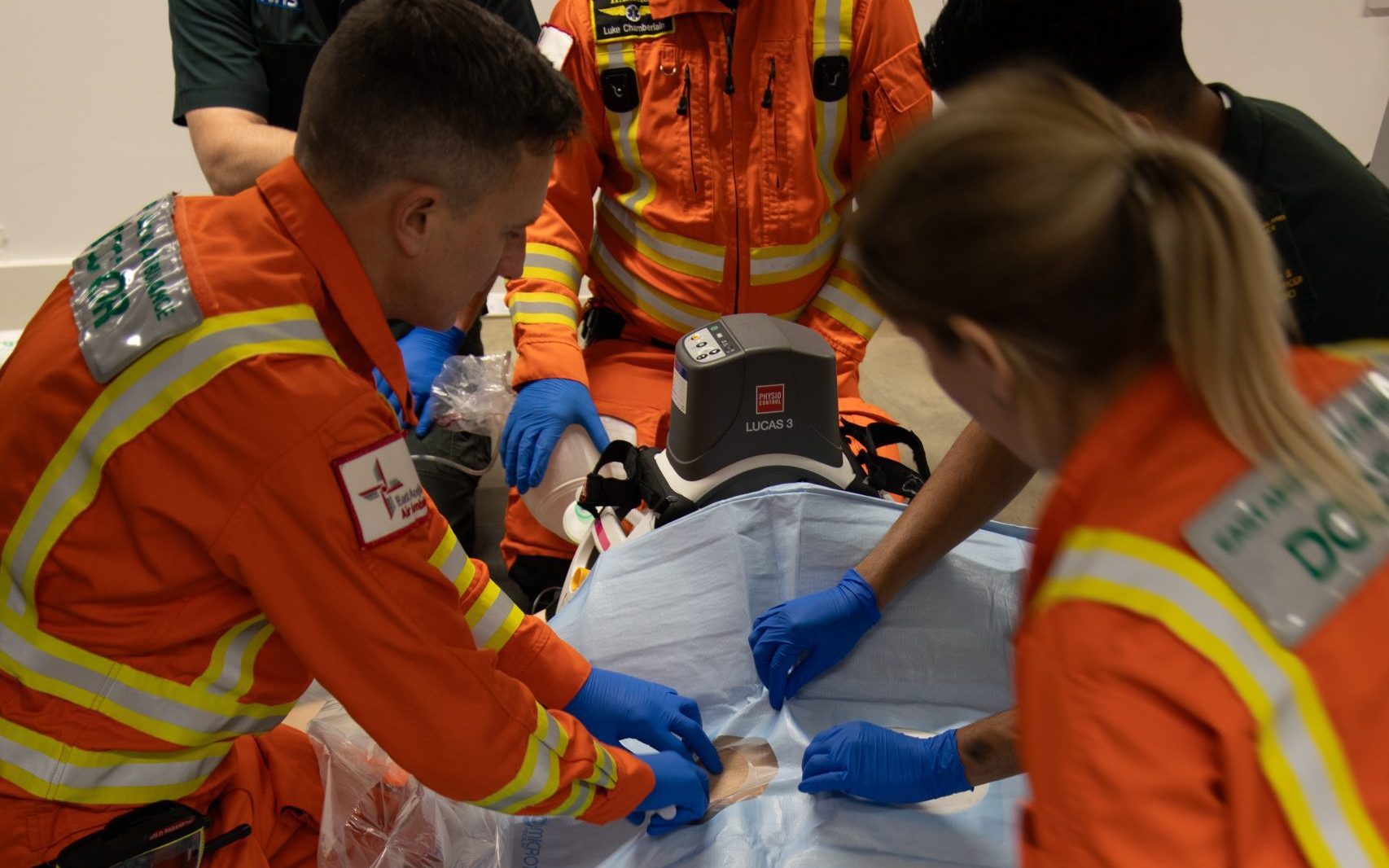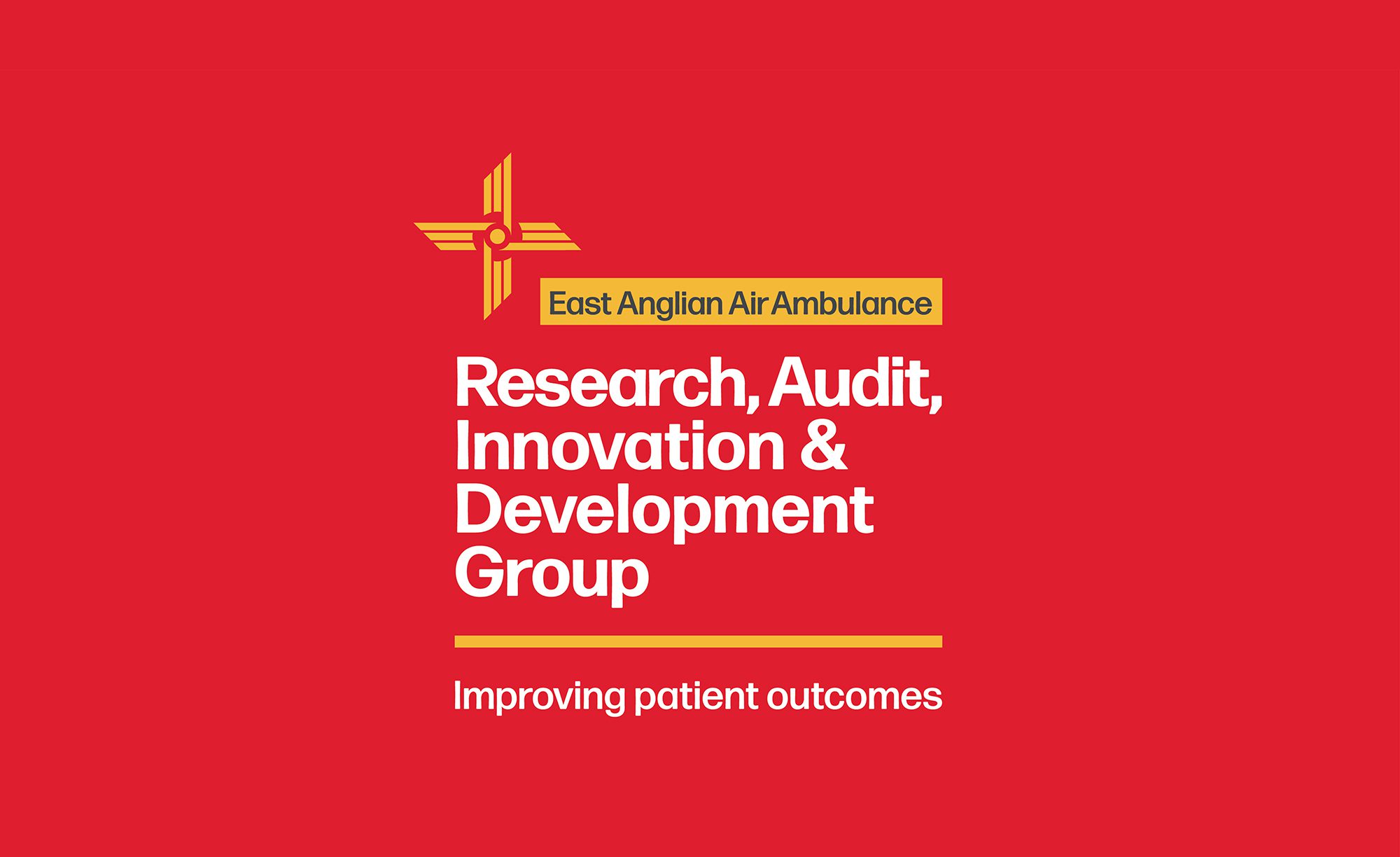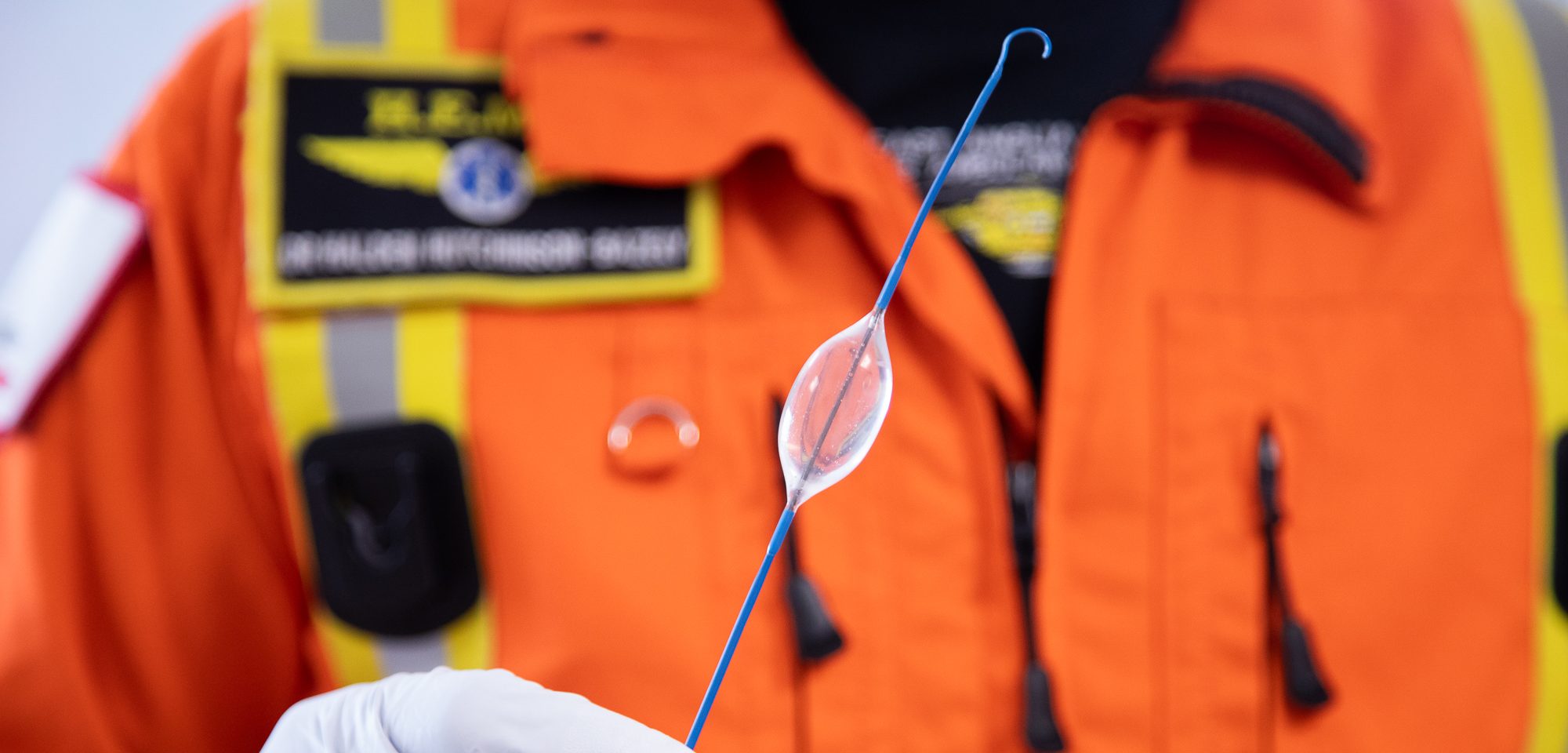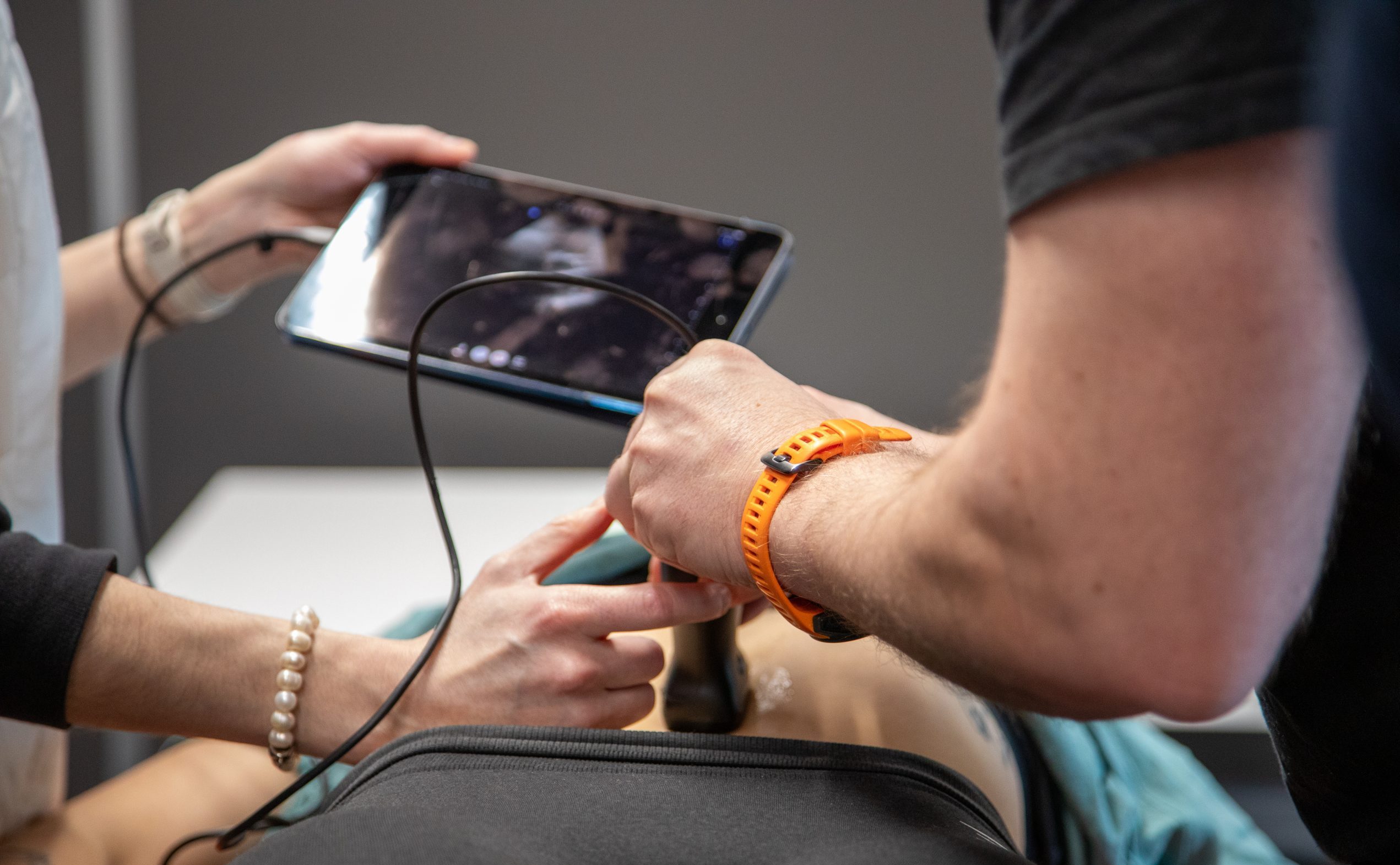BRAIN-FIRST Study
Biomarker assessment for intracranial haemorrhage - feasibility of integrating prehospital blood sample testing (BRAIN-FIRST)
East Anglian Air Ambulance (EAAA) has launched an innovative project using a minimally invasive blood test at scene for patients with a suspected head injury to help determine if they are suffering from bleeding in the brain.
The BRAIN-FIRST project is a UK-first and will introduce a new blood test, obtained at the scene of an incident, to help our crew diagnose bleeding in the brain. EAAA clinicians will use our handheld blood analyser, called the iSTAT Alinity manufactured by Abbott Point of Care Inc, which will detect brain biomarkers in the blood and provide diagnostic results in minutes.
Biomarkers are tiny biological molecules found in blood, tissues, or other body fluids that indicate a normal or abnormal process, condition, or disease. A biomarker increase in the BRAIN-FIRST study may indicate that the patient is suffering from bleeding in the brain.
EAAA hopes to improve prehospital care in brain injury patients, helping crews diagnose injuries faster and transfer trauma patients to the most appropriate hospital for their ongoing treatment and care, such as a neurosurgical or major trauma centre.
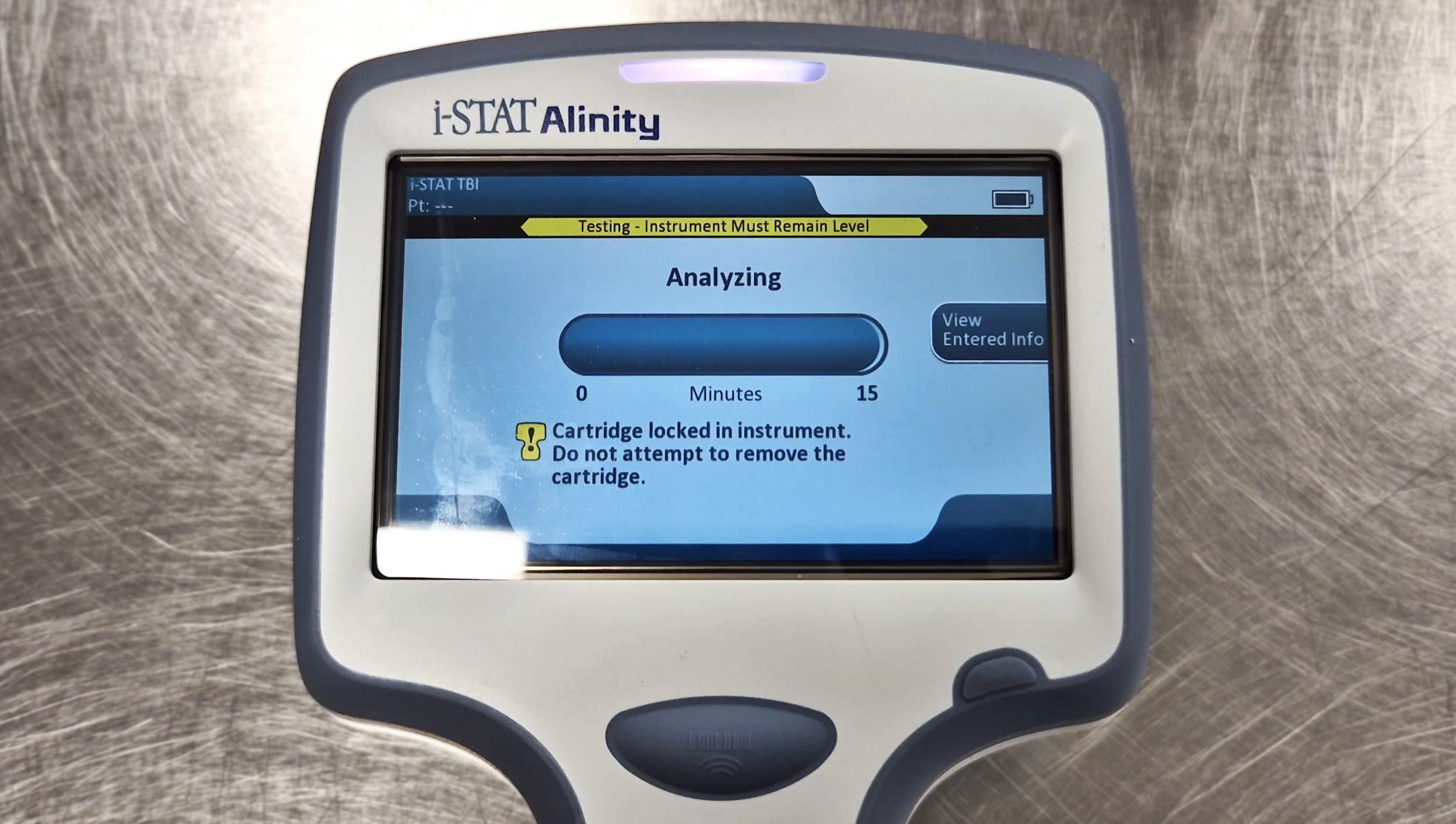
BRAIN-FIRST Clinical Lead, Consultant Emergency Physician and EAAA Honorary Consultant (R&D), Dr James, says, “Brain biomarkers have been studied in laboratory and hospital settings, and have demonstrated promise as decision support tools in the detection of traumatic brain injury. Testing biomarkers prehospital, at the scene of an accident, may support earlier diagnosis, treatment and care for many critically unwell patients with intracranial haemorrhage – more commonly known as a bleeding in the brain.”
Dr Price continues, “The BRAIN-FIRST project will enable our crews to use this new blood test super early in the disease process. This, along with a rapid transfer to the most appropriate hospital, could help to improve outcomes for patients and ultimately save more lives.”
Generous funding from Abel Homes, long-term supporters of EAAA, has enabled the purchase of iSTAT TBI Cartridges required for the BRAIN-FIRST project.
